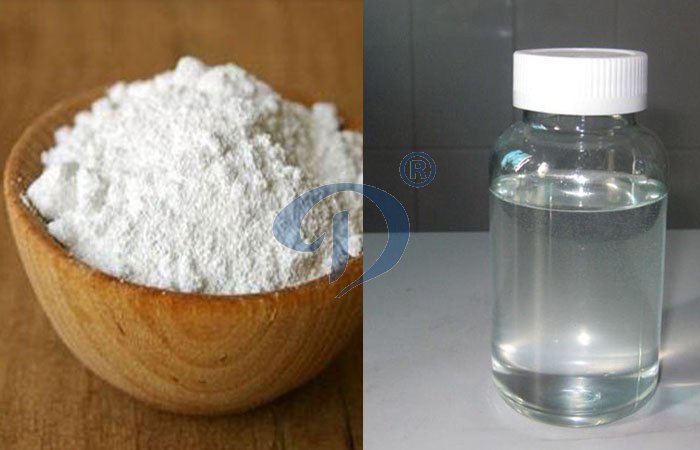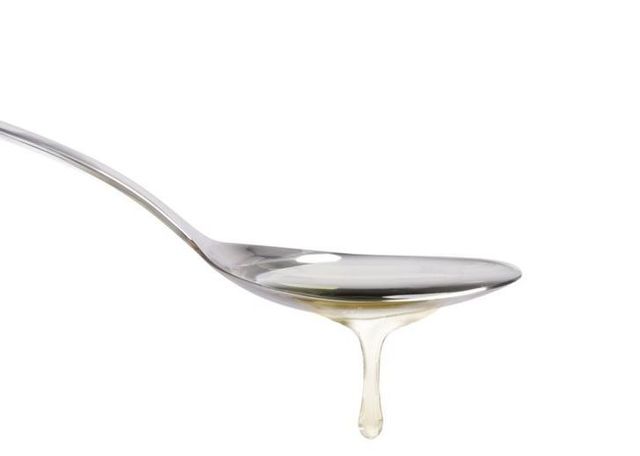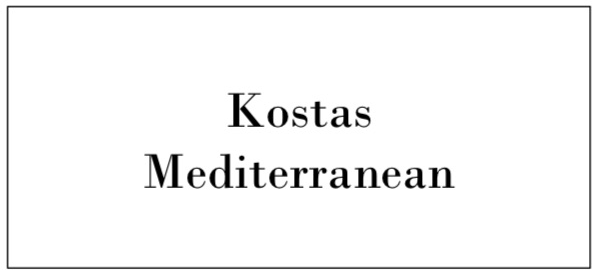Understanding Corn Syrup And Glucose Syrup

Corn syrup and glucose syrup are both types of sweeteners commonly used in food production. Corn syrup is a type of glucose syrup that is derived from corn starch. On the other hand, glucose syrup can be derived from various sources, not limited to corn. Both syrups are made by breaking down starch molecules into simpler sugars, primarily glucose. While they have similar compositions and sweetness levels, they do differ in terms of their uses and culinary applications. Understanding the differences between corn syrup and glucose syrup can help in making informed choices when it comes to selecting the right sweetener for various recipes.
Introduction To Corn Syrup And Glucose Syrup
Corn syrup and glucose syrup are commonly used liquid sweeteners in the food industry. Both syrups are derived from starch, with corn syrup specifically coming from corn starch. These syrups are made by breaking down starch molecules into simpler sugars, primarily glucose. While they have similar compositions and sweetness levels, there are differences in terms of their sources and production methods. Understanding these differences can help in choosing the right sweetener for different culinary applications. In this article, we will delve into the details of corn syrup and glucose syrup, exploring their uses, nutritional variances, and culinary applications.
Sources And Production Methods Of Corn Syrup And Glucose Syrup
Corn syrup and glucose syrup are derived from starch, but they have different sources and production methods. Corn syrup specifically comes from corn starch, which is extracted from the kernels of corn. The starch is then enzymatically broken down into simpler sugars, primarily glucose. On the other hand, glucose syrup can be derived from various sources like wheat, potatoes, or barley. The production process involves extracting or hydrolyzing the starch from these sources and converting it into glucose syrup through enzymatic processes. Overall, both syrups undergo similar enzymatic processes to convert starch into sugars, but they differ in terms of their initial sources.
Corn Syrup Overview

Corn syrup is a versatile liquid sweetener derived from corn starch. It is primarily composed of glucose, which gives it its characteristic sweetness. Corn syrup is available in different types, such as light corn syrup and dark corn syrup, each with varying levels of sweetness and flavor. It is commonly used in a wide range of culinary applications, including baking, candy-making, and as a sweetener in beverages. Corn syrup helps to add moisture, texture, and sweetness to recipes, making it a popular choice for both professional chefs and home cooks alike.
Corn Syrup Composition And Sweetness Levels
Corn syrup is primarily composed of glucose, a simple sugar that gives it its characteristic sweetness. It is derived from corn starch through a process that breaks down the starch molecules into individual glucose molecules. The sweetness of corn syrup varies depending on its type, with light corn syrup being less sweet than its darker counterpart. The composition of corn syrup also includes small amounts of other sugars, such as maltose and dextrose. These sugars contribute to the overall flavor profile of corn syrup, giving it a mildly sweet taste with hints of caramel and vanilla.
Types Of Corn Syrup And Common Uses
There are different types of corn syrup that are commonly used in various culinary applications. One of the types is dark corn syrup, which has added molasses, giving it a darker color and a rich, robust flavor. It is often used in baking recipes for dark and dense desserts like pecan pies. Another type is high fructose corn syrup, which contains a higher percentage of fructose. This type of corn syrup is commonly found in processed foods and beverages, serving as a sweetener and enhancing the flavor and texture of the products.
Glucose Syrup Overview

Glucose syrup, also known as dextrose syrup, is a sweetener made from the hydrolysis of starch. It is a clear, viscous liquid that is commonly used in a variety of culinary applications. Glucose syrup is derived from various sources such as corn, wheat, rice, or potatoes. It is commonly used in the food industry as a sweetener, thickening agent, and humectant. Glucose syrup has a moderate level of sweetness and is often used in confectionery, baked goods, beverages, and sauces. It provides moisture and enhances texture in food products, making it a versatile ingredient in many recipes.
Glucose Syrup Composition And Sweetness Levels
Glucose syrup, also known as dextrose syrup, is primarily composed of glucose molecules derived from the hydrolysis of starch. It is a clear, viscous liquid that has a moderately sweet taste. Glucose syrup contains a high concentration of glucose, which contributes to its sweetness. However, compared to corn syrup, it is typically less sweet. The sweetness levels can vary depending on the specific type of glucose syrup and its production process. Generally, glucose syrup provides a mild to moderate level of sweetness, making it suitable for various culinary applications.
Types Of Glucose Syrup And Common Uses
There are different types of glucose syrups available in the market, each with its own characteristics and uses. Some common types include regular glucose syrup and high maltose glucose syrup.
Regular glucose syrup is versatile and commonly used in baking, confectionery, and beverage industries. It provides sweetness, softness, and helps to retain moisture in various food products.
High maltose glucose syrup, on the other hand, is often used in applications that require higher stability and resistance to crystallization, such as in the production of candies, ice creams, and frozen desserts.
Overall, glucose syrup is widely used as a sweetener, thickener, and humectant in various food products, providing both functional properties and sweetness.
Nutritional Variances

The nutritional variances between corn syrup and glucose syrup lie mainly in their composition and sweetness levels. Corn syrup is primarily composed of glucose, with small amounts of other sugars. It is higher in calories and carbohydrates compared to glucose syrup. On the other hand, glucose syrup consists mainly of glucose and has a lower calorie content. It also has a higher glycemic index, meaning it can cause a faster rise in blood sugar levels. When considering health implications, individuals with diabetes or those watching their sugar intake may prefer glucose syrup. However, moderation is key, and consulting with a healthcare professional is advised.
Nutritional Differences Between Corn Syrup And Glucose Syrup
Corn syrup and glucose syrup have slight nutritional differences. Corn syrup is primarily composed of glucose, with small amounts of other sugars. It is higher in calories and carbohydrates compared to glucose syrup. On the other hand, glucose syrup consists mainly of glucose and has a lower calorie content. It also has a higher glycemic index, causing a faster rise in blood sugar levels. While both syrups offer little nutritional value, glucose syrup may be preferred for its lower calorie content and potential impact on blood sugar levels.
Health Implications And Considerations
Consumption of both corn syrup and glucose syrup should be done in moderation due to their high sugar content. These sweeteners contribute to empty calorie intake and can lead to weight gain, increased risk of chronic diseases such as diabetes and heart disease.
It is important to note that individuals with specific dietary conditions, such as diabetes or insulin resistance, should carefully monitor their intake of both corn syrup and glucose syrup due to their potential to rapidly raise blood sugar levels. It is recommended to consult with a healthcare professional or registered dietitian for personalized advice on sweetener choices and portion sizes.
Culinary Applications

Culinary Applications:
Both corn syrup and glucose syrup have a wide range of culinary applications due to their sweetening properties and ability to enhance texture and stability in various recipes.
Corn syrup is commonly used in baking and confectionery to prevent crystallization and create a smooth and glossy texture. It is often used in recipes for candies, caramel, and pecan pies.
On the other hand, glucose syrup is used in a variety of food products such as ice creams, jams, and jellies. It acts as a thickening agent and helps to retain moisture, preventing crystallization and improving the texture of the final product.
In summary, both corn syrup and glucose syrup play important roles in enhancing the taste and texture of a variety of culinary creations.
Cooking And Baking With Corn Syrup
Corn syrup is a common ingredient used in cooking and baking due to its ability to prevent crystallization and create a smooth texture. In baking, it is often used in recipes for candies, caramel, and pecan pies to give them a soft and chewy texture. Corn syrup can also be used as a sweetener and a thickening agent in sauces, marinades, and glazes. It adds moisture and enhances the flavor of baked goods, making them more tender and moist. However, it is important to use corn syrup in moderation as it is high in calories and can contribute to weight gain.
Cooking And Baking With Glucose Syrup
Glucose syrup is a versatile ingredient that is commonly used in cooking and baking. It acts as a sweetener, a thickening agent, and a humectant, helping to retain moisture in baked goods. Glucose syrup is often used in recipes for candies, frostings, and fillings, as it helps to prevent crystallization and creates a smooth and creamy texture. It can also be used to enhance the chewiness and softness of cookies and pastries. Glucose syrup is easily incorporated into recipes and adds a subtle sweetness without overpowering other flavors.
Conclusion

In conclusion, corn syrup and glucose syrup are two commonly used sweeteners that have their own distinct characteristics. While corn syrup is derived from cornstarch and contains varying amounts of glucose and other sugars, glucose syrup consists primarily of glucose molecules. The differences in composition result in variations in flavor, sweetness levels, and uses in culinary applications. Ultimately, the choice between corn syrup and glucose syrup depends on personal preferences and the specific recipe. It is important to consider the nutritional implications and use these sweeteners in moderation to maintain a balanced diet.
Key Differences Between Corn Syrup And Glucose Syrup
Corn syrup and glucose syrup may seem similar, but they have some key differences. The main difference lies in their composition. Corn syrup is derived from cornstarch and contains varying amounts of glucose and other sugars. On the other hand, glucose syrup consists primarily of glucose molecules. This difference in composition leads to variations in flavor, sweetness levels, and uses in culinary applications. While corn syrup is known for its smooth texture and ability to prevent crystallization, glucose syrup is commonly used as an ingredient in candies, desserts, and baked goods to add sweetness and moisture.
Which Is Better For Your Health And Recipes?
When it comes to choosing between corn syrup and glucose syrup for your health and recipes, there are a few things to consider. From a health perspective, it is important to note that both of these syrups are high in sugar and should be consumed in moderation. However, corn syrup, especially high fructose corn syrup, has been linked to obesity and other health risks when consumed in excess. On the other hand, glucose syrup contains primarily glucose, which is a simple sugar that the body can easily metabolize. In terms of recipes, both syrups have their own unique qualities and can be used interchangeably in some cases, depending on the desired outcome. It ultimately comes down to personal preference and specific recipe requirements.
FAQ About Corn Syrup Vs Glucose Syrup: Unveiling The Sweet Differences
Q: What is the main difference between corn syrup and glucose syrup?
A: The key difference lies in their sources. Corn syrup is derived from corn starch, whereas glucose syrup can be sourced from various starches like wheat, rice, or potatoes.
Q: Are corn syrup and glucose syrup interchangeable in recipes?
A: While they are similar, they may not always be interchangeable due to slight differences in sweetness levels and consistency. It’s best to follow the recipe’s specific recommendation.
Q: Are corn syrup and glucose syrup equally unhealthy?
A: Both syrups are high in glucose, but corn syrup often contains more fructose, which has been linked to health concerns like obesity and diabetes when consumed excessively.
Q: Can corn syrup and glucose syrup be used interchangeably in baking?
A: In most baking recipes, these syrups can be used interchangeably as they serve primarily as sweetening agents and help prevent sugar crystallization.
Q: Are there any nutritional differences between corn syrup and glucose syrup?
A: Corn syrup may contain a higher amount of calories and carbohydrates compared to glucose syrup, but both are low in essential nutrients and high in empty calories.
Q: Do corn syrup and glucose syrup have different consistencies or textures?
A: Corn syrup tends to be thicker and stickier compared to glucose syrup, which is often more viscous and runny, leading to variations in how they are used in cooking.

Kostas Mediterranean is a family-owned Greek restaurant located in North Vancouver. Our passion for bringing the authentic flavors of Greece to the local community has been the driving force behind our establishment. We take pride in offering a warm and welcoming atmosphere where guests can experience the true essence of Greek hospitality. Our journey began with Kostas, whose culinary skills and love for Greek cuisine inspired the creation of the restaurant. With a desire to share his family recipes and traditions, Kostas set out to create a dining experience that captures the spirit of Greece. The result is a menu that showcases a delightful blend of traditional and modern Greek dishes prepared with the finest and freshest ingredients.